Japanʼs years of closure to other countries have come to an end and in recent decades the country has the joined the global phenomenon of globalization, which, among the several benefits including enhanced international trade and increase in economic growth, also allows cultural exchange due to foreign talents spending a period working abroad.
Large Japanese cities have become the perfect destination for young people that wish to immerse themselves in an enriching yet challenging environment, as the job context here presents significant differences from the Western world.
The experience can be especially impactful for students or recent graduates that are in their first work involvements, as getting to spend some time in a foreign country is always a formative experience, but when it comes to a nation like Japan there is even more to learn, since the habits are contrasting to the European ones.
This article will address similarities and differences perceived by three European students that spent two months in Tokyo for a summer internship in a startup. The following content will highlight relevant aspects in the work environment, life beyond the office and how the two reinforce each other to create a lifestyle from which young talents and professionals have a lot to learn from and gain competitive advantage for the future.
Tokyoʼs skyline - Source: www.webuildvalue.com
Facing the First Cultural Differences
During the first days of the internship, we immediately noticed the distinct difference in the workplace. As we settled in, we also were able to make comparisons between our company (a startup) and the more established firms where other international students were working, observing several different behaviours.
Japanese companies are often characterized by a hierarchical structure where seniority and formality play a significant role; instead, when it comes to startups, the atmosphere is more relaxed and horizontal, and all interns play a crucial role in providing ideas and participate in business proposals, avoiding the widespread phenomenon in Japan of only developing projects under strict orders from the top.
This allowed us to develop a sense of responsibility, as being in charge of our own projects meant having to deal with their possible success or failure; this type of responsibility is very formative for twenty-year-olds, because it pushes them to be creative and develop a work ethic in line with Japanʼs one, where long hours and dedication are seen as a sign of commitment.
This characteristic can certainly be demanding but it offers young professionals the possibility to develop strong work ethic and resilience, which will be valuable for future positions.
Another big aspect in local companies is the vast presence of technology in business processes; it is safe to say that firms (and even cafés!) are infused with technology, with all kinds of IT systems and cloud infrastructures operating in offices and it is not uncommon to see robots go around in corporate buildings! This type of technology can also be easily leveraged by foreign engineers looking for a position in one of the most technologically advanced countries in the world (if youʼre interested, you can check out my previous article “Opportunities for IT professionals working in Japanˮ).
DAWN Avatar Robot Café (in Tokyo)
Immersion Beyond the Office: Embracing Japanese Culture
The immersion in the Japanese customs continues even after you leave the office walls to go on with your day. As you exit the company building and walk on the street you start breathing the culture immediately, as there are countless indicators of it.
The large flashy displays on skyscrapers and store signs all take advantage of Japanʼs most famous exports, most often including entertainment giants like Pokémon, Studio Ghibli and other animated shows and manga such as Dragon Ball and One Piece. Living in Tokyo, we got to notice the unbounded presence of these characters in all districts of the city and contexts, because these brands expanded beyond entertainment conquering all areas of life.
Pokémon Center in Tokyo - Source: www.jw-webmagazine.com
As you pay attention to the people on the streets and in the subway, they give indication of a fast-paced and dynamic lifestyle, since metro cars are always packed and especially at night the city transforms into a bustling environment filled with bars and nightclubs. This aspect contributes to creating a double-faced culture, where the cityʼs fast way of living and skyscrapers meet the more quiet and calm lifestyle represented by the numerous shrines and rural areas.
Food was definitely a big component in our period in Tokyo, as our experience here got enriched not only by all the varieties of the Japanese cuisine, which goes far beyond sushi, ramen and tempura, but also by the etiquette which is expected in restaurants. We had leave behind forks and knives and get used to chopsticks (after a few failed attempts and stains!), and adopt manners that in Europe would be considered impolite but are just part of the culture here, such as slurping noodles.
Source: www.http://sushiincorporated.com/
Direct Reflections from the Interns
As the weeks passed, we interns often had discussions about the different polarizing lifestyle in the country and we often diverged among ourselves about impressions and key elements we found most noticeable.
Alex Laybourneʼs Perspective: Efficiency and branding
Alex Laybourne, a 19-year-old intern from Liverpool, England, reported to me that
she found many aspects she enjoyed observing during her time in Japan.
One of the biggest differences from the UK she noticed was the efficiency of the transportation and cleaning systems: she stated that the British train system is very often unreliable, while the Japanese one is always correct and on time; similarly, according to her, the overhaul cleanliness of Japan is far superior to the UK, which is really impressive considering that trash bins are very difficult to find in Tokyo.
Another factor she observed was the branding and presence of some of televisionʼs biggest icons; as a matter of fact Alex said: “For me personally it felt so refreshing and comforting to see characters and brands such as Pokémon or Studio Ghibli plastered everywhere. I felt like my childhood was on display and it made my trip so enjoyableˮ.
The only downside she mentioned was the reclusive characteristic of the population: the people here rarely engage in conversations and sometimes they can seem cold, compared to Europe; while back home there are many possibilities to share a few words with people on the subway or waiters and cashiers in restaurants, the Japanese population is really reserved and cautious, especially with foreigners. This factor is highlighted by the fact that generally there is a low percentage of people fluent in English in the country, so the linguistic barrier makes the communication even more difficult.
Giovanni Piccininiʼs Insights: Precision and Adaptability
The second intern Giovanni Piccinini (Italy, 24) noticed a few particular differences from his country.
First of all, he stated that precision is such a consistent element both in and out of the workplace that he feels more precise after this experience. This characteristic can be seen in many aspects of life: among many, Japanese people put enviable precision in work presentations and contents, food preparation and entertainment output.
Then, there is something positive coming from the lack of English fluency of regular people: it helps you develop new skills, not only useful in the office, but in all contexts, which are adaptability and flexibility. When talking to someone who speaks a different language and has no way to understand what youʼre saying, you both have to find a middle ground and a compromise; only in this way you can create a bridge between the two cultures.
The three interns and our supervisor in a café
Luca Innocentiʼs Impressions: Social Etiquette and Urban Calm
Now we move to the third intern, which in this case is me (Luca Innocenti). Since I came back home, my time and my experiences in Tokyo have proven to be valuable in many ways, especially those related to the attitude that I developed during my stay in the city.
As a 21-year-old foreign intern in Japan, I had to face a few challenges in everyday life: apart from some of the issues I have already listed, like the language barrier and the peopleʼs reserve, one that I found kind of testing was the different social etiquette.
Coming from Italy, Iʼm used to address problems, but also positive aspects, by talking openly and Iʼm also used to people speaking loudly in most locations, while I noticed that Japan is characterized by a very silent population; this not only involves finding yourself as the only one speaking in places where youʼre supposed to be quiet (as it happened to me several times, especially in the subway), but even in the workplace, comments about your work and compliments or downsides are addressed implicitly. Another example that surprised me during my first days is that when you walk into a store or your hotel lobby, probably you wonʼt be approached or talked to by the clerks or receptions, who will just greet you by bowing, reinforcing my perception of a silent population.
Moving onto some of strong aspects of Tokyo, I can safely say that the city has offered me a sense of calm that I didnʼt expect from such a massive metropolis. Iʼm originally from Milan, which is considered to be the busiest and most fast- paced city in Italy, so I was already used to the chaos that a big city entails and I though I knew what I was getting myself into.
Staying in Shinjuku, one of the cityʼs biggest and most crowded neighbourhoods, I got quickly used to its dynamism, but I didnʼt think it could host one of the biggest public gardens I have ever been to, Shinjuku Gyoen National Garden; in this park I found a sense of calm which was incredibly contrasting to all the other locations in the neighbourhood, especially to Shinjuku Station, the busiest train station in the world.
Shinjuku Gyoen National Garden - Source: www.japan-guide.com
Looking back now, the entire city can be considered as a place of contrasts, and thatʼs what makes it beautiful and worth visiting. Everywhere you go in Tokyo, you get to breath a little bit of both chaos and relax; first of all, the crowded streets and subway stations are a constant reminder of one of the most active towns in the world, but if you enter into one of the numerous parks or shrines, youʼll encounter a millennial tradition all based on silence, calm and respect.
This characteristic easily transfers to the workplace, where employees are focused solely on their tasks during working hours. Meanwhile, during their spare time, Japanese people feel free to enjoy other aspects of life and dedicate themselves to hobbies and physical activities.
The value of working in Japan
Working in Tokyo has been such a formative experience, since all of us can safely say that we have adopted some Japanese customs even after returning home.
After my internship, I find myself placing more emphasis on teamwork and collaboration, considering that group harmony is one of the key elements in the workplace (as Iʼve already talked about in my previous article “How the Japanese work culture changed in the past decadesˮ).
Another aspect now very important to me is the kaizen philosophy, so the effort of adopting some sort of continuous improvement everyday, no matter how small.
Everyone who spends a period abroad in Japan, either for an internship or a more advanced job placement, will encounter a different lifestyle, which will provide him with new values that will give them a competitive advantage against similar candidates for future positions.
What we can do for you
My name is Luca Innocenti, and I work for Hello World Japan, a Tokyo-based career assistant startup currently looking for foreign professionals in the IT department.
We provide engineers with career support and programs to facilitate learning the Japanese language, ensuring that employees feel comfortable within society.
If you enjoyed reading this article or are interested in learning more about Japan's work environment and culture, please consult my previous articles, subscribe to our Substack and visit Hello World Japan's website at https://helloworldjapan.com/ to learn about recent job openings.
The article is also available in podcast form on Substack, Spotify, and Apple Podcasts.

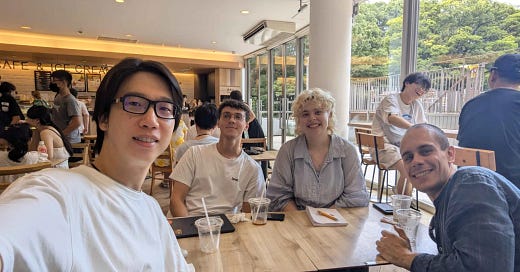


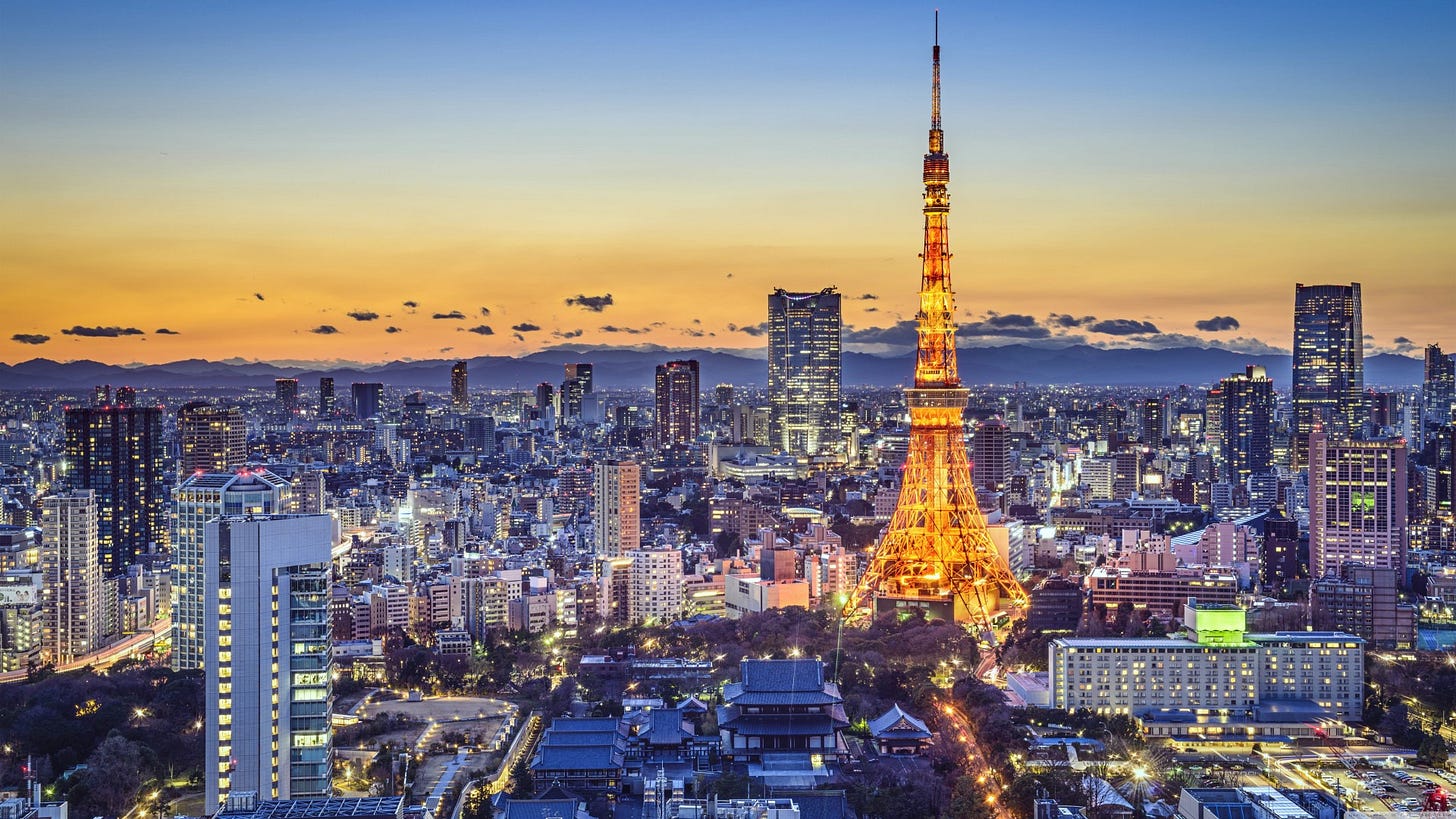
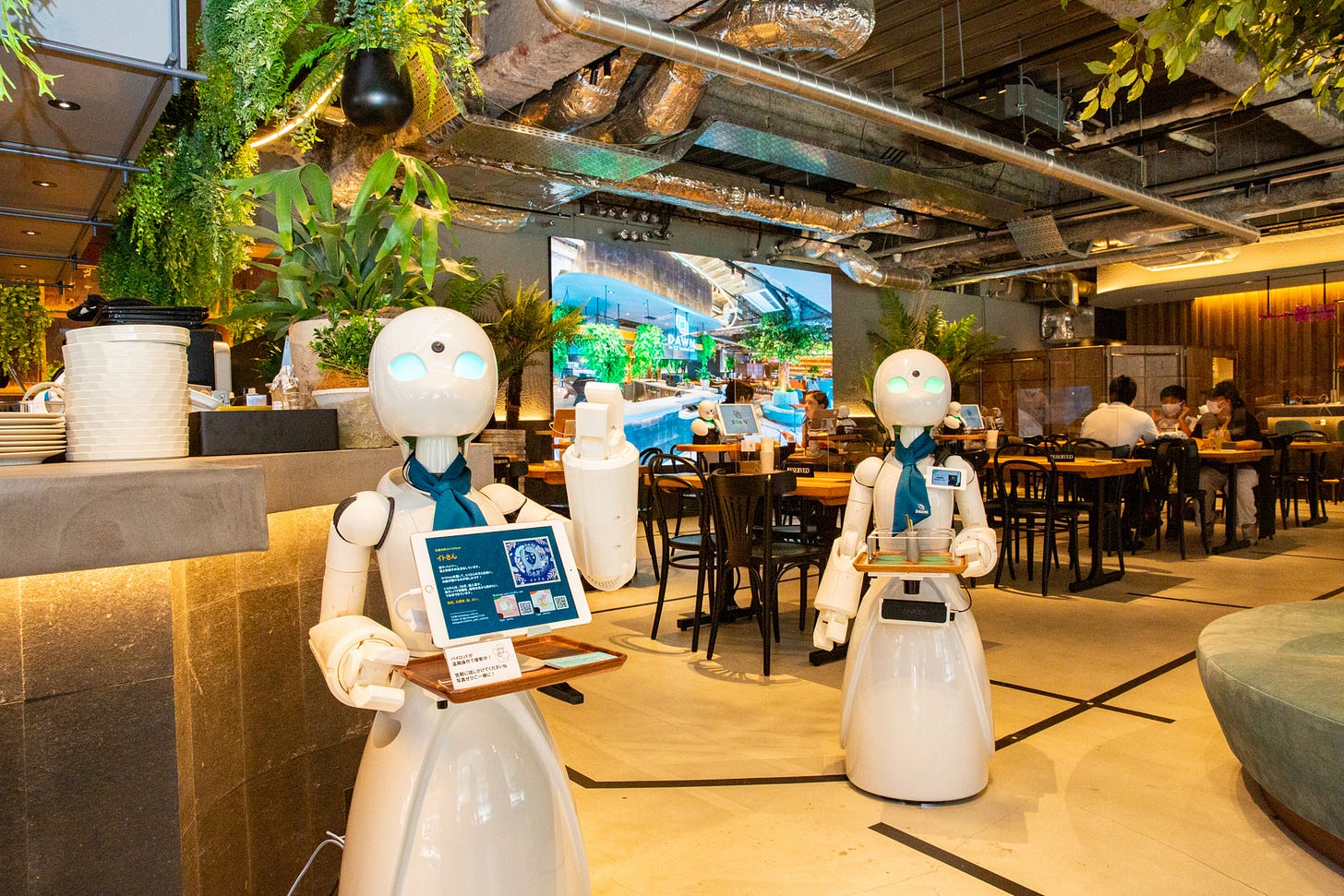
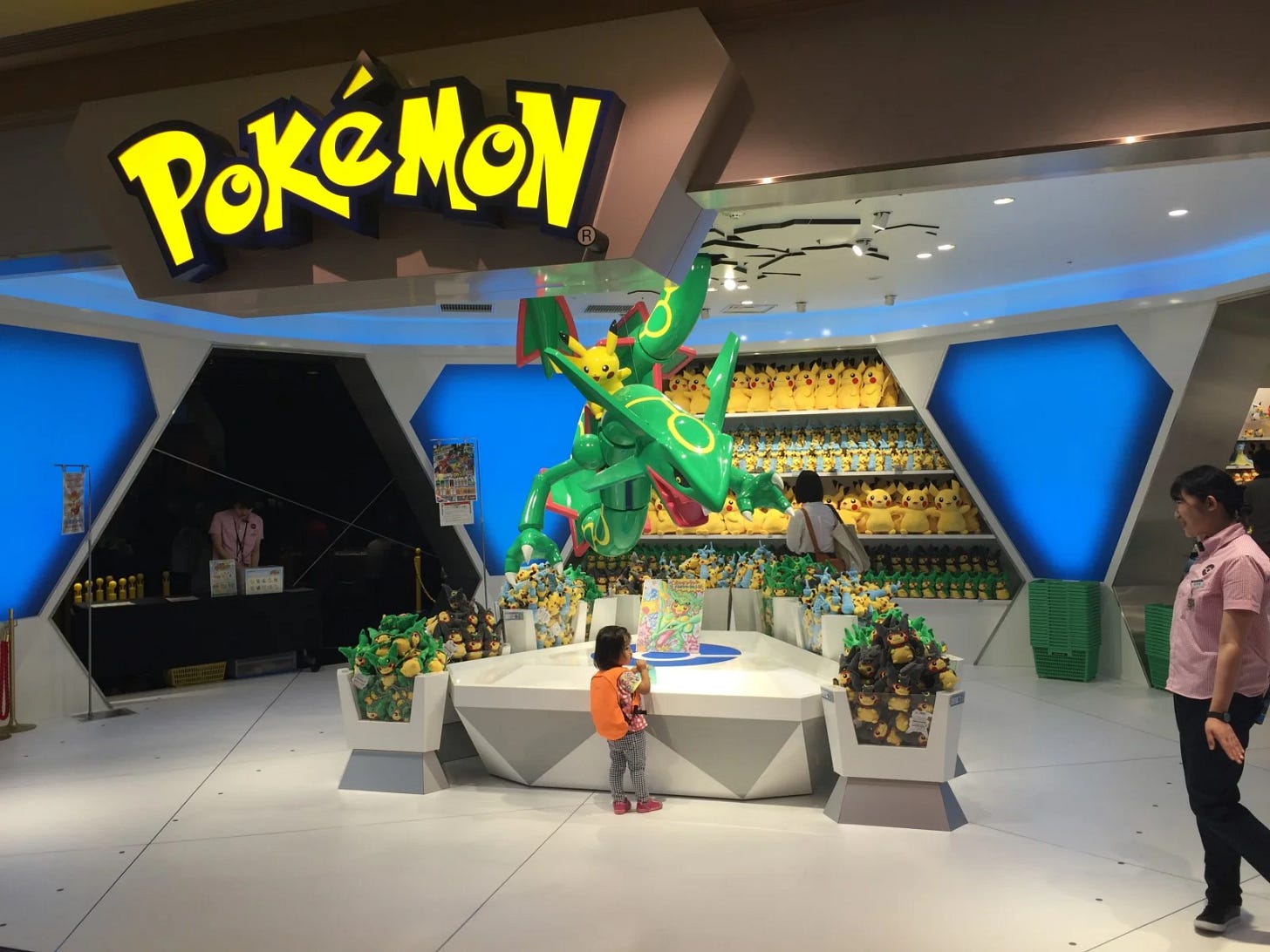


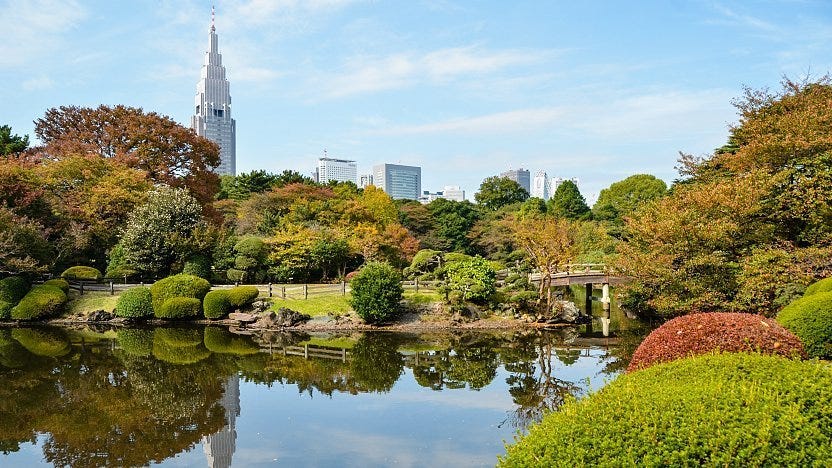








Share this post